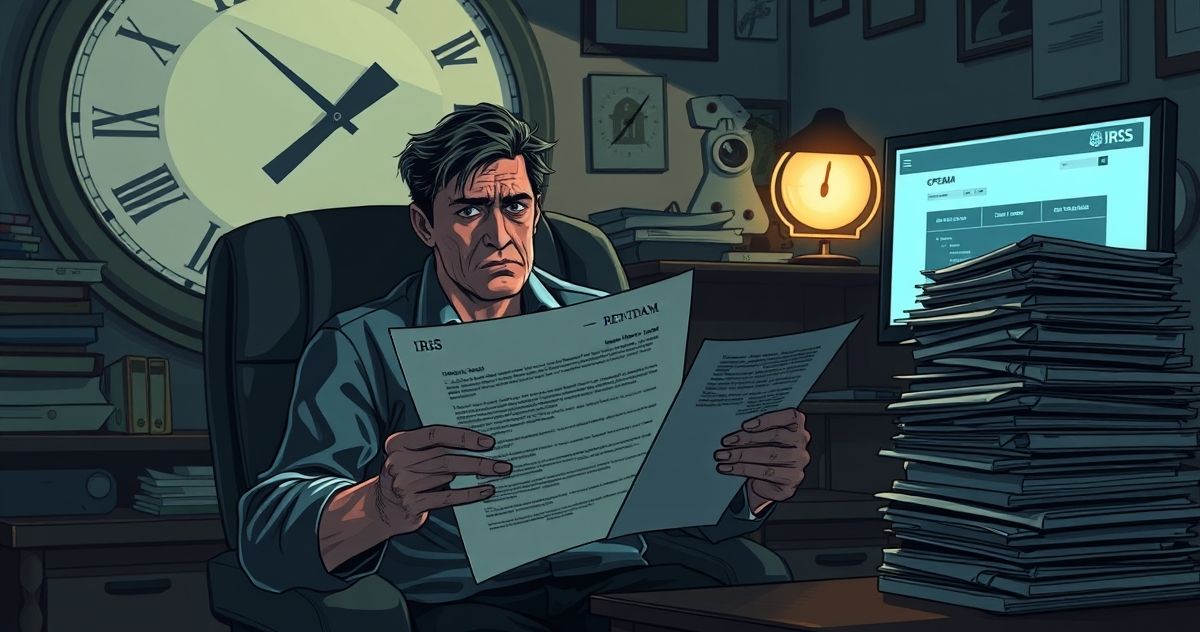Understanding the CP503AM Reminder
The Internal Revenue Service (IRS) issues the CP503AM Reminder to alert taxpayers about overdue tax payments. This vital notification serves as an official reminder that previous attempts to collect the due taxes or an outstanding balance have not been successful. It’s designed to prompt taxpayers to take immediate action before more severe measures are implemented, such as enforced collection actions.
What Is the CP503AM Reminder?
The CP503AM Reminder is part of a series of escalating notices from the IRS intended to inform taxpayers of their outstanding tax debts. Arriving after the CP501 and CP502 notices, the CP503AM signifies a continued failure to respond to prior correspondences regarding unpaid taxes. Its primary purpose is to urge the taxpayer to pay the dues or face possible escalating penalties, interest, and potentially enforced collection actions which could include wage garnishments or levies.
Key Features and Components
The CP503AM contains several key pieces of information crucial for taxpayers:
- Outstanding Balance: Details of the unpaid tax amount, including any accrued interest and penalties.
- Payment Instructions: Specific guidance on how to make payments to the IRS through various methods like electronic payments, checks, or money orders.
- Response Deadline: A defined period within which the taxpayer must respond to avoid further actions. Failure to adhere to this deadline may result in additional penalties.
- Contact Information: Information on how to contact the IRS for questions or further clarification on the payment process.
Relevant Filing or Compliance Requirements
Upon receiving a CP503AM Reminder, taxpayers are required to take immediate action. If they are unable to pay the full amount owed, it is imperative to contact the IRS to discuss possible alternatives, such as setting up a payment installment agreement. Ignoring the notice can lead to more significant enforcement actions. Those who dispute the amount should provide evidence or documentation supporting their position to the IRS promptly.
Penalties or Consequences for Non-Compliance
Non-compliance with the CP503AM Reminder can result in serious repercussions. The IRS has the authority to enforce collection through various means:
- Wage Garnishments: The IRS can notify your employer to withhold a portion of your wages directly towards the unpaid tax debt.
- Bank Levies: The IRS may seize the balance of your bank account to cover the tax liability.
- Federal Tax Liens: The IRS could place a legal claim against your property (assets and rights to property) until the debt is satisfied.
- Increased Penalties and Interest: Unpaid taxes continue to accumulate interest and additional penalties, increasing the total amount owed over time.
Significance in Tax Resolution and Financial Compliance
The CP503AM Reminder holds significant weight in the realm of tax resolution. It signals that the taxpayer is on the verge of facing serious enforcement actions if the debt remains unpaid. Understanding and responding to this notice is crucial for managing one’s financial obligations and retaining compliance with federal tax laws.
Ignoring this reminder could not only lead to financial strain due to increased penalties and enforcement actions but can also impact an individual’s credit score and financial standing. Addressing the CP503AM promptly ensures that taxpayers can negotiate manageable payment solutions or dispute inaccuracies, helping to prevent additional escalation and maintain a smoother financial situation.
Moreover, it serves as a critical stepping stone for taxpayers to reassess their tax responsibility and ensure future compliance, thereby avoiding such predicaments. Engaging with financial advisors or tax professionals upon receiving such notices can be beneficial in navigating these complex scenarios effectively.
Conclusion
The CP503AM Reminder is not just a simple reminder; it is a pivotal notification in the debt collection process that aims to instill urgency in taxpayers to address their outstanding tax obligations. Prompt action in response to this notice is essential to avoid costly penalties and potential enforcement actions. By understanding the implications of this notice, taxpayers can better manage their tax duties, ensuring smoother financial health and compliance with IRS regulations.

